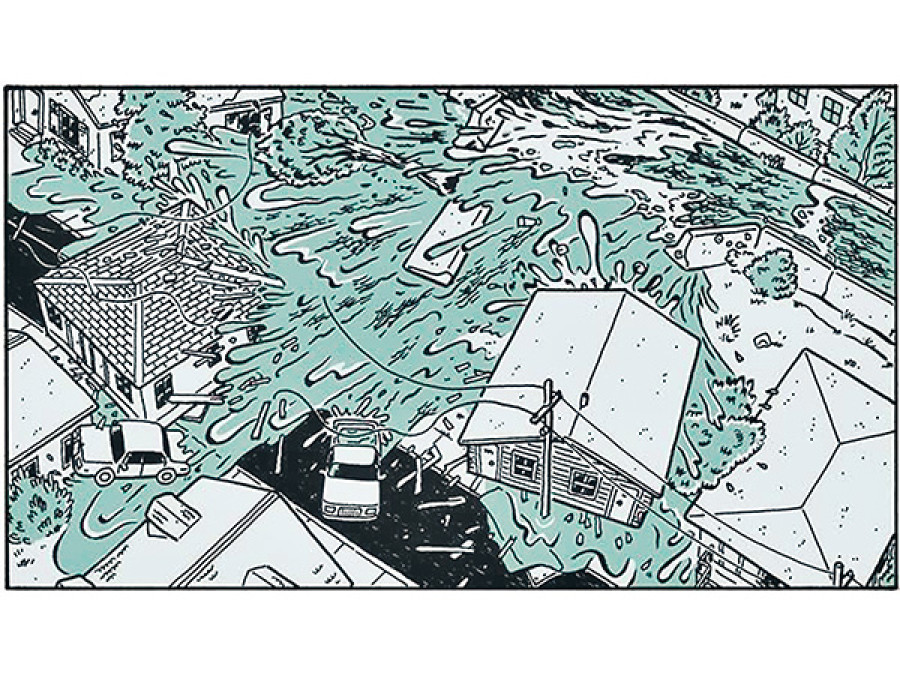Opinion
Frameworks for change
Nepal’s parliamentarians need to advocate for ‘science and technology’-based decision making on disaster risk reduction and climate change adaptation
Gangalal Tuladhar
Four priorities, seven targets
The 3rd World Conference on Disaster Risk Reduction approved four priorities, seven global targets, and a set of guiding principles for 15 years to come. The conference agreed that strong commitment from the political leaderships of all countries were required in implementation and follow-up of the new framework. The four priorities are: understanding disaster risk; strengthening disaster risk governance; more investment in disaster risk reduction and resilience; and enhancing disaster preparedness for effective response to ‘Build Back Better’ in recovery, rehabilitation, and reconstruction.
In addition, the seven global targets are: substantial reduction in global mortality; substantial reduction in the numbers of those affected; reduction in economic losses in relation to global GDP; a substantial reduction in disaster damage to critical infrastructure and disruption of basic services, including health and education facilities; an increase in the number of countries with national and local disaster risk reduction strategies by 2020; enhanced international cooperation; and increased access to multi-hazard early warning systems and disaster risk information and assessment.
The conference also agreed that the Hyogo Framework for Action adopted in 2005 had been an important instrument for raising public and institutional awareness, generating political commitment, and focusing and catalysing actions by a wide range of stakeholders at all levels. However, countries have been challenged to factor disaster risk reduction in to public investment, land-use planning, infrastructure projects, environmental management, and social policies to reduce risk drivers and tackle the causes of risk creation and weak coordination within and across institutions. This has resulted in the continued rise of disasters impacts and disaster risks worldwide.
Over the last decade, disasters have continued to take a heavy toll on lives and property worldwide. Over 700,000 people lost their lives, over 1.5 million were injured, and approximately 23 million were made homeless as a result of disasters. The total economic loss was more than $ 1.3 trillion. Likewise, communities across Nepal continue to suffer from a variety of small and large-scale disasters. Each year, hundreds of people lose their lives, thousands of families are affected, and millions of dollars invested in development and growth are lost. In 2014 alone, more than 400 people were killed in landslides and floods.
Focus and coherence
At the conference, parliamentarians called for coherence in the three important ‘post-2015 international frameworks’—the Sendai Framework for Disaster Risk Reduction, the Sustainable Development Goals, and climate change. But we committed to the following actions in support of the Sendai Framework as political leaders, legislators, and policy monitors: obtain the highest-level of political support for the Sendai Framework; strengthen legislative framework to support a paradigm shift toward risk-sensitive and resilient development; support an improved institutional set up for the governing of disaster risk reduction; promote local capacity building; establish strong oversight to enhance accountability; and enhance parliamentary cooperation for disaster risk reduction.
It is high time for Nepal’s Members of Parliament (MPs) to integrate a risk-informed argument in the legislation process, as the government has tabled a Disaster Risk Management bill at Parliament. We, the MPs, are accountable to the people and need to advocate for ‘science and technology’-based decision making on disaster risk reduction and climate change adaptation. If we honestly follow some of the recommendations in the Sendai Framework, we can make our new Disaster Risk Management Act more resilient for development and the people. It would also be the right thing to do as a member state of the UN.
Tuladhar is a member of the Constituent Assembly and a former Minister for Education




 19.12°C Kathmandu
19.12°C Kathmandu










